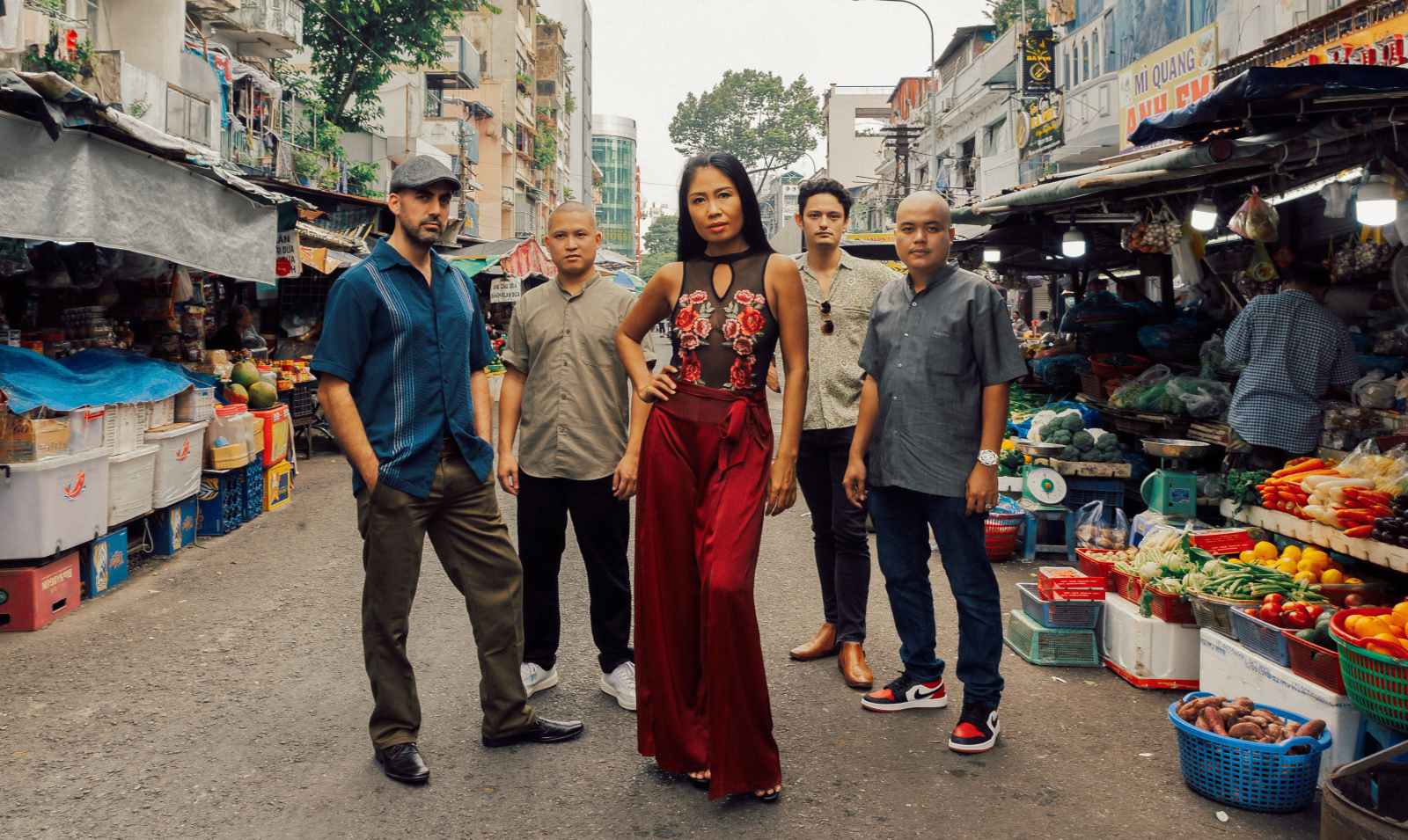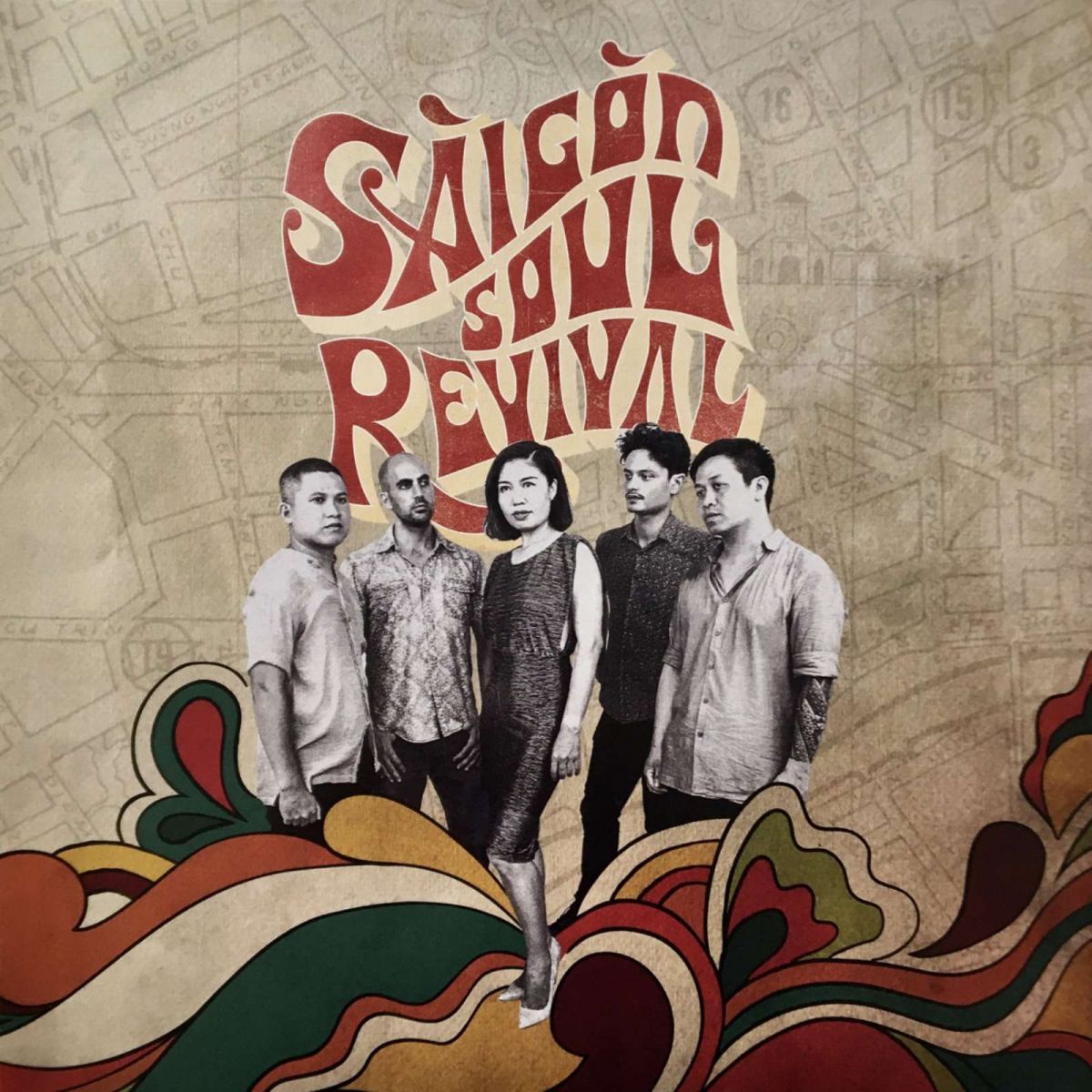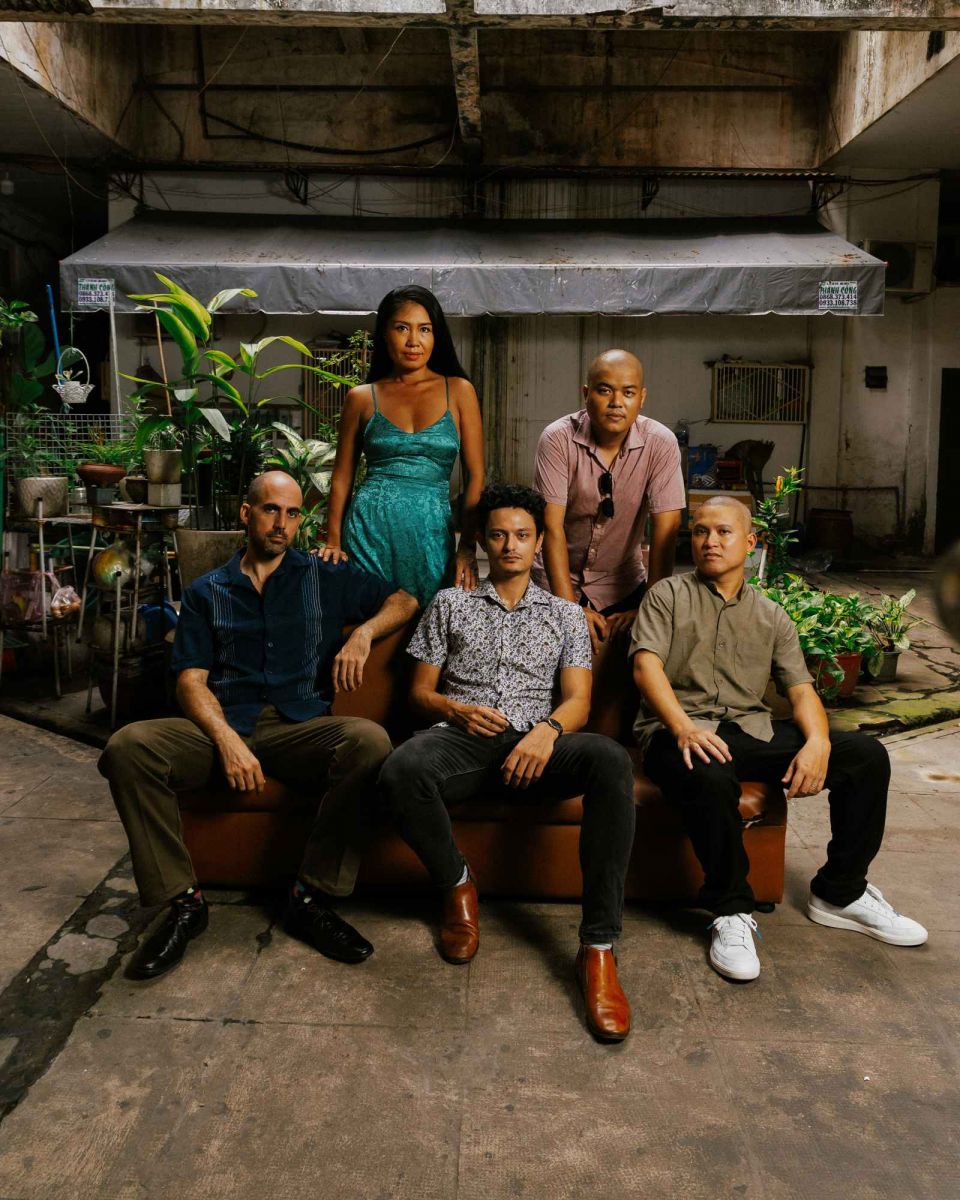W Coffee Talk Saigon Soul Revival: Reviving old souls in new tunes
Every journey begins with an idea, and for Saigon Soul Revival, the idea of forming a band came about quite unexpectedly. The members first met at various gatherings, sharing a deep passion for the nostalgic melodies of old Saigon, particularly the soul music of the 1960s and 70s. This mutual admiration for the genre eventually led them to form the band.
Saigon Soul Revival is a unique collective, comprised of multinational members who primarily communicate in English but create music that deeply resonates with the vintage Vietnamese sound. The band consists of five core members: Gabriel from Cyprus on bass, Indy from France on guitar, Đăng Khoa on keyboard, Bảo Hiếu on drums, and Anh Minh as the lead vocalist.

Soul music had its golden era, and after 1975, new musical trends gradually took over. Yet, the love for the melodies of the 60s and 70s has never entirely faded. Somewhere, someone is still playing those old records, unintentionally inspiring the members of Saigon Soul Revival.
Hello Saigon Soul Revival!
Thank you for joining us for today's W COFFEE TALK! What inspired the name “Saigon Soul Revival”?
Hello WOWWEEKEND!
The name Saigon Soul Revival signifies the revival of a music style that was once popular in Saigon before 1975. We aim to develop our unique sound, striving to "revive" songs that seem to have been forgotten or are only remembered by the older generation. We want to reintroduce these captivating melodies to younger audiences, particularly in Vietnam, which is why we chose the name Saigon Soul Revival.
How would you describe Saigon Soul Revival's musical style?
Classic, passionate, and intense, yet powerful enough to drive the crowd wild.
As a multinational band, have you encountered any challenges in creating your music?
Currently, Gabriel, our bassist, lives in Cyprus. He returned home during the COVID-19 pandemic. Our goal is to release an album every year, with Gabriel flying back to Vietnam for about a month to complete the project. While this could be seen as a challenge, it hasn't really hindered us.

How does the band handle cultural differences, preferences, and ideas during the creative process? What is the key to maintaining the band's cohesion?
From a cultural perspective, there is a significant difference between East and West. However, as music lovers, we share a common passion that brings us together. We start with an idea and connect through discussions, exploring different topics until we find common ground. It's like writing songs about love—each love story is unique, and our songs reflect that uniqueness.
What role does Saigon play in the band’s music?
Saigon plays a crucial role in Saigon Soul Revival’s music. Whether we’re reimagining old songs or creating new ones, the way we compose music, write lyrics, and arrange melodies is deeply influenced by the music style of Saigon in the 60s and 70s. This has become a defining characteristic of the band, giving life to the name Saigon Soul Revival.
If you could only choose one of your released songs, which one would it be and why?
If we had to choose one, we would unanimously pick “Nào Ta Cùng Hát,” featured in our debut album “Họa Âm Xưa”.
While most of our songs are about romantic love, “Nào Ta Cùng Hát” was specifically written for the band. It introduces how we met in Saigon, how we came together, and how we brought our music beyond Vietnam's borders to merge with the global music scene. This song stands out from the rest in terms of rhythm, musical style, and lyrics.
We've been performing “Nào Ta Cùng Hát” since 2019, and even after five years, DJs worldwide, not just in Vietnam, are still remixing it in their own styles and playing it at various events.

How does the band balance the pressures of the modern music industry with staying true to your artistic vision?
We don't really view it as pressure. In the modern music industry, we strive to preserve our original style and stay true to the artistic direction we want to pursue.
Of course, it's not entirely accurate to say we're unaffected by modern music. For example, in our 2019 release “Hào Hoa,” we invited rapper Blacka to perform a rap segment. As mentioned, we want today's youth to revisit, listen to, and experience Vietnamese music from the 60s and 70s to appreciate how great it was. At the same time, we're always looking for ways to innovate, bringing something new to something old.
Could you share a particularly meaningful memory with the band?
A particularly meaningful memory for Saigon Soul Revival is our participation in the first season of the “Ban Nhạc Việt” program, aired on VTV.
At that time, the band was still relatively new, and four members were foreigners. The idea to participate came from Anh Minh, our lead singer. She wanted the foreign members to experience a reality show in Vietnam. Initially, they were a bit hesitant, but we decided to join. On stage and in front of the audience, we gave it our all!

As you know, Westerners highly value major holidays like Christmas and New Year's. By coincidence, the show progressed into these holiday seasons, so some members returned home, leaving us little time to rehearse. I remember that for the final round we participated in, we met just three hours before our 5 PM performance to quickly rehearse backstage. After that night, we finished in the top 7.
We want to take this opportunity to thank the program because after it aired, Saigon Soul Revival reached a wider audience in Vietnam across different age groups.
What can fans expect next from Saigon Soul Revival?
The band recently concluded a European tour in July, and in early December, we'll embark on another European tour with new destinations. While we aim to release an album each year, this time, we plan to release one or two songs or a single to ensure the highest quality.
We hope that one day, when Saigon Soul Revival is mentioned or announced before a performance, we'll receive even more support and love from our Vietnamese and international audiences.


